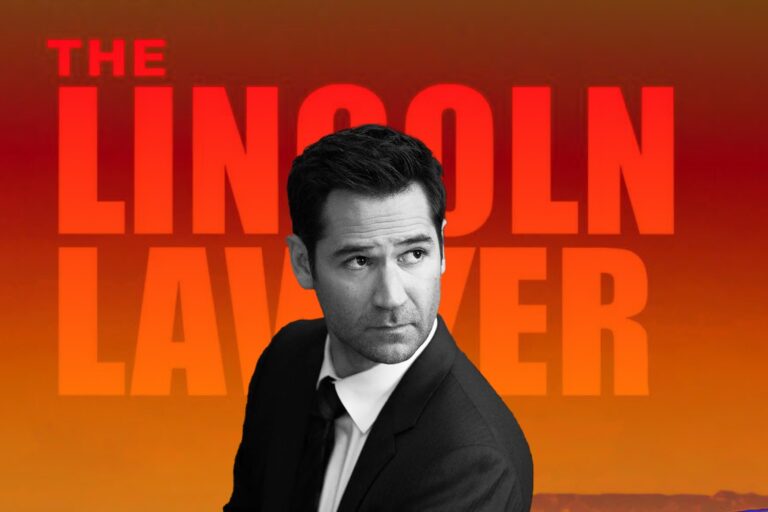Inc. vs Fortune: How Could Follower Inc. Ties to Giant Fortune?

Magazines are facing the same struggles that newspaper publishers have faced for more than a decade. They cannot afford to do the same things and expect the same results. They need to carefully evaluate how they do business and redesign their products and services to appeal to a new generation of news consumer. Like so many other publications, Inc. has moved to a paywall and tiered subscriptions, offering subscribers a variety of options, based on their specific needs. They have also redesigned their print magazine to try to attract new subscribers and retain existing ones. Only time will tell if this is enough to continue their publication and warrant additional investments in their work, or if additional tweaks are needed, like reducing print frequency or discontinuing print altogether.
Mansueto Ventures, despite its name, is actually a publishing holding company. Its only properties are Inc. and Fast Company – legacy magazine titles that now involve all sorts of media properties, including events, websites and so forth. Inc. is a 40-year-old title focused entirely on small business and entrepreneurs. This magazine is the place for small business owners and startup folks to revel in the awesome world of entrepreneurial business. It was founded by an MIT trained engineer and has since become an industry leader in all things small business and startup tech, including producing an annual list of the fastest growing private companies in the United States. The magazine provides in-depth special reports on topics like the best places to work and the country’s most productive entrepreneurs, as well as daily news on money, tech, and management. Its famous franchise is the Inc.5000, which is a ranking of the fastest-growing private companies in America that we are able to identify. It’s a much sought-after honor.
Inc. is an American business media property founded in 1979 and based in New York City. It publishes eight print issues annually, as well as daily online articles and videos. Inc. also produces several live and virtual events yearly.
Inc vs. Fortune: Let’s Call It a Tie

Inc. and Fortune might share the same interest in business issues. However, Inc. is claimed to be more down to earth and practical for small business owners, while Fortune is for giant corporate employers to catch up with its rivals. Fortune is more like a product for investors compare to Inc. for startups folks. As the two sites attract audiences with its unique features and contents, it is hard to rank. Nonetheless, Inc. is somehow holding the upper hand.
Right Person at A Right Time: Inc. Lead the Trend

For many years, Inc. was a magazine that featured obscure entrepreneurs and quirky start-ups on its covers.
It was published in Boston, unlike many of its rivals, which are based in New York, the center of the finance and magazine worlds. Its ambitions were purely focused on the small businesses it wrote about, and it was largely overshadowed by the likes of Bloomberg Businessweek, Forbes and Fortune.
But today, Inc. is on something of a roll. Working from offices at 7 World Trade Center, Inc. has been turning out glossy covers of celebrities like Jessica Alba and Mark Cuban, broadening its appeal. It recently signed a deal with CNBC to start a content-sharing and conference business focused on entrepreneurship. It has lured reporters and editors from bigger business magazines. And it is defying the trends plaguing most magazines, with growth in advertising pages, in unique visitors to its website and in newsstand sales.
“Inc. is becoming a mainstream publication, which we never were,” said Bo Burlingham, an editor at large who has written for the magazine for 32 years. “We were sort of outliers or outlaws.”
Its editors, reporters and even its owner credit these changes partly to how popular entrepreneurship has become in recent years. Joe Mansueto, chief executive of Morningstar, who was profiled in the magazine in 1994 and bought Inc. along with its sibling publication, Fast Company, in 2005, has no qualms that Inc. benefits from this movement.
“Entrepreneurship is hot!” Mr. Mansueto said. “It’s right smack in the middle of this trend.”
It’s a trend that interests many media outlets. Entrepreneurs have been the subjects of books, like Michael Lewis’s “Flash Boys: A Wall Street Revolt,” and are characters in series like HBO’s “Silicon Valley.” CNBC has bolstered its coverage of small businesses since 2012, when it started to devote more broadcast time to reality television. It now features programs like “The Profit,” “Shark Tank” and “Restaurant Startup.” In recent years, Forbes also introduced a “30 Under 30” issue, which features young entrepreneurs, and started a conference, called the Reinventing America Project, that highlights small businesses.
On What Ground Could Inc. Tied to Giant Fortune?

Inc. appears to be picking up on more than just an industry trend. According to the Alliance for Audited Media, the magazine’s total circulation over the last decade grew 22 percent to 763,962, from 625,824, a higher percentage of growth than Fortune or even Bloomberg Businessweek.
ComScore also shows that the number of unique visitors to Inc.’s site increased 117%, to 4.6 million in October, from 2.1 million the same time the year before.
Inc. is also attracting more advertisers. Data provided by the magazine shows that its number of advertising pages grew 10 percent from January to October compared with the same period the year before. Ira Melnitsky, chief executive of Tourneau, which started advertising in Inc. this year, said the magazine targeted a “passionate audience” of entrepreneurs.
Readers of the magazine seem to treat it as a textbook of sorts for managing small businesses. Jim Mitchell, chief executive of the technology company Fuhu, said he used to read Forbes and Fortune faithfully when he was a partner at Accenture, because they featured companies he worked with. When he moved to a start-up, he turned to Inc. for its practical advice.
“I was looking for other people’s experiences in this, what I call this ‘new world’ to me,” Mr. Mitchell said. “Inc. magazine really spoke to me on that level.”
Recently, employees at larger business publications have also migrated to Inc. Eric Schurenberg, its president and editor in chief, who previously worked at Fortune and Money, noted that Inc. recently hired four people from Fortune, including Inc.’s publisher, John Donnelly.
David Whitford, who spent 18 years at Fortune, recently accepted a buyout and joined Inc.., where he had previously worked. Mr. Whitford, an editor at large, said covering small businesses, where there are fewer handlers than at the larger companies he wrote about at Fortune, was refreshing.
“You’re much closer to the ground at Inc. There’s a lot less mediation, a lot less spin,” Mr. Whitford said. “As a storyteller, that was really wonderful to me.”
Inc.’s ties to Fortune have also helped Inc. secure more prominent deals. Nik Deogun, CNBC’s senior vice president for business news and its editor in chief, said that Mr. Schurenberg, as a “longtime friend of CNBC” helped the network with its 25th anniversary coverage. When Mr. Schurenberg became Inc.’s president, he said, they started discussing how the companies could collaborate. It quickly became clear that conferences would allow them to share their audiences as well as potential speakers.
“Inc. clearly has a finger on the pulse of entrepreneurs” Mr. Deogun said. “Partnering with them, given our reach and our expertise, seemed very logical.”
Inc.’s New Chief Plans on Enter Television Business

There could be TV in the future for Inc. magazine.
The 40-year-old magazine for small- and mid-sized businesses, owned by billionaire Joe Mansueto’s Mansueto Ventures, landed a new editor-in-chief this week: Scott Omelianuk.
Omelianuk’s last media job had been running This Old House magazine as its editor-in-chief for a dozen years. Since exiting This Old House with its sale to private equity owners in 2016, he’s been teaching at Stevens Institute of Technology and consulting PBS show “Make48” about inventions, among other projects.
“I think there is some TV in our future,” Omelianuk told Media Ink. He succeeds Jim Ledbetter, who left in October to become chief content officer of Sequoia Capital, one of the more successful venture capital firms in Silicon Valley.
“There’s a whole range of things entrepreneurs need or want — from educational products to software,” said Omelianuk. His first order of business: redesigning Inc.’s Web site.
The Bottom Lines
A decade older, Fortune is clearly an empire Inc. could not beat. However, Inc. is not losing, the way it investigates tough questions and give out practical management tips has earned more than attention from the public. Not yet surpass Fortune but Inc. is on the rise and the final result, only time could answer!








